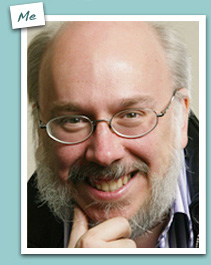To procrastinate from study during the week, I went with a friend to a seminar held for the Melbourne Writers Festival. Being a tag along I had no idea what I was going to listen to, and having no faith in my intellectual abilities thought I may be out of my depth with my Honour student friend and those like him. To my pleasant surprise I was able to keep up, sometimes I think I worry too much.
The seminar was a part of the One Just World series, this one was called Tradition Vs Development.
Put simply, it raised the questions whether development and cultural linquistic traditions are mutally exclusive.
Here are some things I found interesting:
The majority of the world now speaks at least two languages. I guess I’m in the minority, I think many young Australians in my demographic would be in the minority. We dont need to speak another language, although maybe we should learn Mandarin just in case.
Development refers to the intergration of smaller communities who have not yet been influenced by Western Culture. Development should always be about those people and not for economic gain. Althought sometimes there is not a clear answer to the question, whose agenda do development agencies have?
Many of the panelists had first hand accounts of working with these small communities. The decision to develop should always come from the people, yet often times they would not talk. Which is why there are instances where the decision is made for them.
One of the panelists, Butet Manurung does aid work in Sumatra with a village called Onaringa. She recounts the villagers telling her that they were constantly mocked and called primitive, this caused a lack of confidence in themselves and an unwillingness to perserve their own culture. This village was being threatend by an improaching Pine plantation. The villagers were skeptical of education, it was this modernisation that was threatening to destroy their homes. Although, without an education they were unable to fend for themselves, they could not communicate with those people that could advantage of this. Not knowing a common language means not knowing when you are agreeing to sell your home.
So there is a dichotomy. Education for those that need it in order for a sustainable, stable life, and the threat of eradication of polyglotism and definable cultures.
Whose decision is it to preserve this cultures? Many villagers, just like in the western world, want economic stability for their children, more attainable by learning a universal language. A connection with a wider network of economic and social benefits. Who are we to tell them that it is their duty to preserve their language, and even if they wanted to do they have the means to go about it? Should it be the states? Should it be our duty to record and preserve?
How integral is language to culture? Many people on the panel believed that with the disappearance of a cultures unique language we are cutting the roots of cultural identity. That language holds the cultural knowledge. The homogenality threat means a less diverse world.
Many many more points were raised but to be honest I cant remember enough to form them into sentences. Just another quick one though, make sure whose agenda you are funding when giving money to charitable associations.








